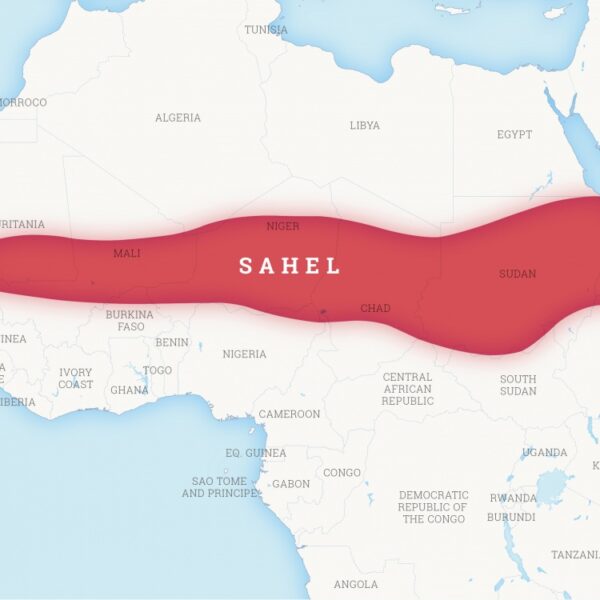A decade-long conflict in the Sahel region of Africa – a belt of land that spans from the Atlantic Ocean to the Red Sea and includes multiple territories such as Mali, Niger and Burkina Faso – has left more than 2.5 million people displaced. A long and violent conflict, combined with deteriorating environmental stability, has resulted in the deaths of thousands, displacement of millions, as well as food insecurity. The Sahel entered 2022 with increasing tensions, violence and conflict compared to two years prior. The recent brutality has been driven by a Jihadist insurgency afflicting Burkina Faso, Mali, and Niger, against the efforts made by such countries to establish a stable democratic regime. The rising violence in these countries has compounded the instability created by the extended internal conflicts and the absence of food. Indeed, 2022 marks the tenth year of war in Africa’s Sahel, and the region’s brutality has only worsened.
In a meeting held last January, Andrew Lebovich, an analyst with the European Council on Foreign Relations, stated that the continuous conflict and instability “reveals the degree of frustration experienced in the region due to the deterioration of security in the Sahel and the inability of regional governments to find answers.” The inability of governments to find concrete solutions has been criticized by different humanitarian organizations, such as the UNHCR, the UN Refugee Agency, which call for concerted global efforts to end the armed conflict in Africa’s Sahel region.
The situation in the Sahel is dire, with an increasing number of deaths due to either the armed conflict, absence of food or worsening weather conditions. It is essential to send support to the region. However, the aid the Sahel needs is not merely military or monetary assistance: it also requires political aid, as regional governments are not stable enough and seem to favour negotiations with armed or jihadist groups. To stop the conflict born out of such political instability and to ease the path to peace, it is crucial to provide support to the delicate issues of stabilization and political reform. Because of the large number of displaced people that the conflict has produced, it is also essential to send on-the-ground humanitarian aid to help those in need of food, water and medication.
Unfortunately, the conflict in the Sahel is not recent: people began escaping from the region in 2011 after an outburst of violence in Northern Mali. Brutality quickly spread to the surrounding countries in which, due to a solid political instability, it found fertile land to grow and expand. With time, tensions grew not only due to the war but also to the worsening climate conditions, dwindling food resources, and the disruption of many political, medical and scholarly infrastructures. In 2019, attacks by jihadist groups in the region grew in number, lethality, and organisation. From that moment on, violence has been incessant, as demonstrated by an increasing number of fatalities among civilians.
The conflict in the Sahel is one of the most extended and violent in the country, with millions of displaced people looking for shelter, water and food. Besides killing thousands and leaving millions without a place to call home, the conflict has also had terrible consequences on political, medical, and educational infrastructure. To ease the resolution of the war, it is vital to send humanitarian aid to the people in need and, most importantly, political assistance aimed at stabilizing the current political situation of the region. Although it is easier said than done, these reforms are necessary to facilitate a better reconciliation and promote peace in the Sahel.
- Italy’s Salaries – Lowest In The E.U. – Drive Workers To Flee - October 23, 2022
- Tensions Increase In Sahel Conflict - October 16, 2022
- The Abuse Of Illegal Immigrants In Italy - October 9, 2022


